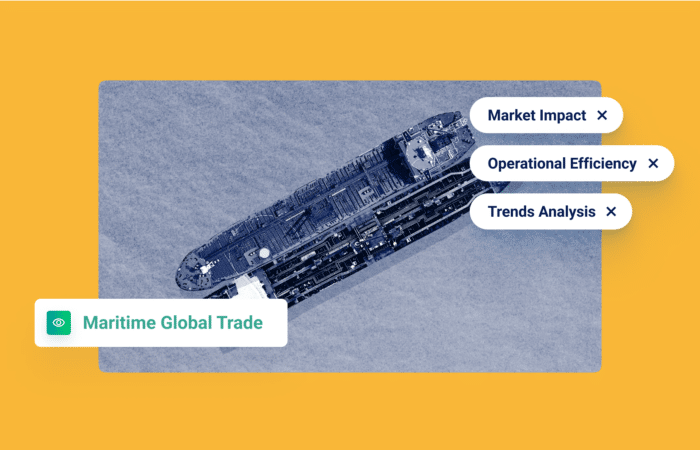What’s inside?
Today marks the launch of Windward Vessel Fuel Consumption API, a unique AI solution providing fuel consumption assessments with up to 95% accuracy on average per voyage, and actionable insights. The solution, the latest AI model in Windward’s decarbonization initiative, enables stakeholders to optimize chartering decisions and manage their carbon footprint, while increasing economic efficiency.
“The first step towards decarbonizing the maritime industry is improving the visibility of vessels’ fuel consumption,” said Ami Daniel, CEO and Co-Founder of Windward. “Environmental concerns and ESG are primary goals for both companies and consumers. We are approaching the point of no return and providing accurate assessments of consumption is key in making business decisions that are both economical and more importantly, environmentally conscious. We are proud to use our maritime expertise and AI to contribute to the industry’s efforts in creating a sustainable future and protecting the environment for future generations.”
Multiple Challenges
The maritime shipping industry transports 90% of world trade and accounts for nearly 3% of the world’s carbon emissions and this number is expected to increase, as maritime trade is predicted to triple by 2050. To cut down on carbon emissions, various regulatory bodies require vessels to monitor and report their fuel consumption and emissions. Currently, fuel consumption data is reported through noon reports, with the crew usually measuring and reporting data manually, making the report susceptible to human error and potential falsification.
Fuel accounts for up to 70% of a vessel’s expenses and inaccurate reporting can cause unintended and avoidable spending.
Shipowners and charterers have different challenges when it comes to fuel consumption concerns. Shipowners often have a visibility issue. Because the crew onboard was not appointed by the owner, and because there is no standard, the owner often does not have confidence in the fuel consumption reporting of the vessels. But the owner is trapped: s/he has no other way to verify the data received from the captain. The lack of a reliable benchmark is problematic for charterers. Let’s say a major oil trader is negotiating a long-term charter party agreement with a shipowner. The charterer knows s/he must pay for the fuel for the entire chartering period, and the price for fuel is set in advance, during the agreement signing. So, the owner offers the ship with a warranted fuel consumption of 50T per day, provided the vessel sails at 12 knots. The charterer already knows that an extra 10% was added (embedding the built-in measurement error). But with fuel prices nearing $750T, every ton counts during the negotiation. But there hasn’t been a reliable benchmark…
The Solution
Windward Vessel Fuel Consumption API provides an objective way to track and calculate fuel consumption of any tanker across the globe in a more reliable and consistent manner, without the use of additional devices. This provides stakeholders – including charterers, shipowners, energy companies, and financial institutions – with total fuel consumption visibility for the main engines, auxiliary engines and boilers of all tankers.
Organizations can optimize their chartering decisions, negotiate better time charter equivalent (TCE) rates, monitor vessels for technical malfunctions and benchmark different fleets, ultimately leading to potential savings of 10 percent of fuel costs on average, as well as a derived reduction in carbon emissions.
With decarbonization regulation in a flux, and the expected regulation of carbon intensity indices (CII), energy efficiency indices (EEXI), annual efficiency ratings (AER) and other variables changing monthly, solving the fuel consumption mystery is the missing piece in translating data into real savings.
Windward Vessel Fuel Consumption API is based on a deep learning model that calculates and assesses the fuel consumption of any given tanker using multiple data sources, inputs, and behavioral features, including speed, meetings, port calls, weather conditions, hull fouling, engines, fuel types, 10+ years of historical voyage data, and more. These datasets were built, tested and verified in collaboration with leading companies participating in Windward’s Data for Decarbonization Program (D4D), a partnership aimed to increase transparency and foster collaboration within the maritime industry by leveraging the power of big data and AI to decrease carbon emissions.
The new solution will be presented at the ADIPEC conference, taking place in Abu Dhabi from October 31-November 3, 2022.







